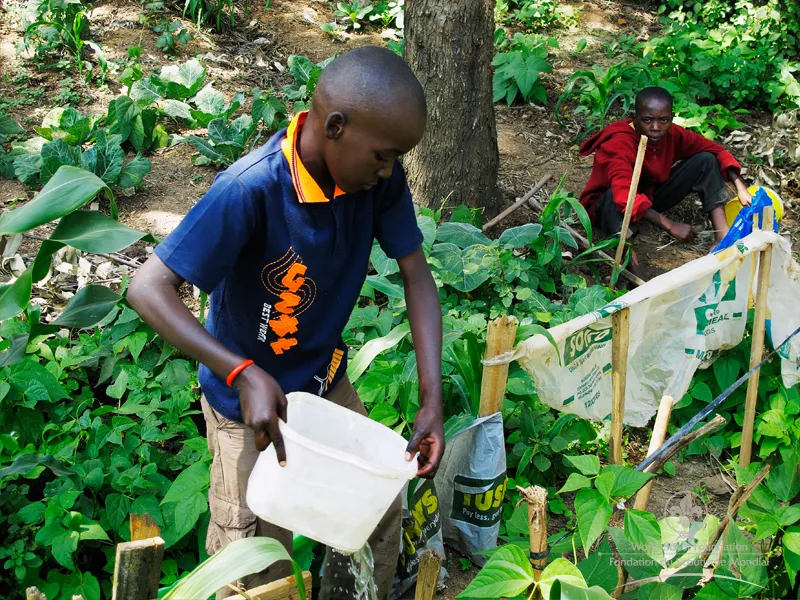Food for Life

Every initiative begins with an idea and Scouts continually search for ways to help in their communities. A positive development in helping impecunious families to break their poverty cycle has been a project called Food for Life (FFL). As the name suggests it is about feeding people but importantly it is based on that well known Chinese proverb "授人与鱼,授人与渔” “Give a man a fish and you feed him for one day, give him a fish hook and you feed him forever!” (Lao Tzu). FFL, likewise, is also brilliant in its simplicity because it delivers as it states and enables families to grow additional or sufficient food to feed themselves, thereby freeing income for other purposes! So, for the small cost of a few seeds a family can supplement, become self- sustaining or grow enough vegetables for themselves and still have some remaining to sell in the market! And, another idea aspect of FFL is that it can be implemented in places where land is scarce or unobtainable. For example, detritus such as old car tyres or sacks can be transformed into “mini-farms”.
The initiative which began with Scouts in the townships of South Africa has now been hailed by the FAO as a remarkable success!
Scouts are a perfect partner to manage FFL projects. Firstly, because when they are trained, in a sense, as market gardeners they are able encourage their parents to participate and secondly their enthusiasm as community trainers, for such a worthwhile programme, is infectious.
FFL began in South Africa in 2006 and under Scout tutelage has spread to Kenya, Uganda and Burundi. Its genesis was as a response to the food crisis and insecurity in Africa. FFL progressively teaches Scouts suitable agricultural skills to produce enough food for themselves, their families and their communities through the sale of surplus produce. A bi product is environmental awareness as FFL is chemical and thus pollution free as it advocates bio intensive techniques which use natural methods of fertilisation, pest and disease control.
FFL yields quick results which also mean, in addition to its nutritional benefits, that it also helps to keep the attention and interest of young people such as Scouts. In Uganda for example, FFL has become a means of fund raising as Scouts have turned the land around some of their Halls into farms. Moreover, those Scouts who have a smallholding can be more productive. Each person who qualifies on the course, and there are three progressive levels, leaves both with the knowledge about successful farming and with a colourful, reference, pictorial, information pamphlet.
Several thousand people have already benefitted from FFL and the opportunities for future development. They are limited only by a small cost for seeds, the cost of training material and the determination of the recipient to succeed.
